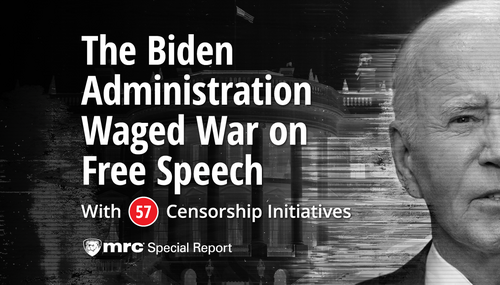 On Friday, May 14, Amazon Prime premiered The Underground Railroad, an orgy of gratuitous violence that is the latest entry among shows with a disturbing focus on "black trauma porn."
On Friday, May 14, Amazon Prime premiered The Underground Railroad, an orgy of gratuitous violence that is the latest entry among shows with a disturbing focus on "black trauma porn."
Relentlessly violent and viciously anti-Christian, it mixes historical truths with exaggerated fictionalized narratives, often trying to tie the constant brutality against black people to the “very foundations” of America.
The series is based on the novel of the same title by Colson Whitehead. The novel imagines a literal railroad underground to transport slaves, a magical element that would normally be a great starting point for any story. Unfortunately, The Underground Railroad also imagines other over-the-top elements that make it worthless as historical fiction.
For example, the series invents a fictionalized version of North Carolina that has exterminated all black people within its boundaries, both slave and free, and replaced them with Irish servants. The people in this horrifying state recite holy scripture and wear crosses as they justify and commit extreme violence.
While some white southern slaveholders did indeed use Scripture to try justify the evil institution, the role of Christianity and devout Christians in the abolition of slavery throughout the West is entirely erased. (The most famous real-life member of the Underground Railroad, Harriet Tubman, was guided by her Christianity.)
The series regularly shows evil devout Christians quoting the Bible as they engage in grotesque, close-up acts of savagery against black Americans, such as burning them alive. The one white character who manages to create a genuine space of safety and freedom for black people instead worships a Native American-style “Great Spirit.”
The series spends many episodes bouncing between brutality and boring sequences with long, drawn-out shots where little happens. Until the last few episodes, the black characters have minimal character development at all. The role of the main character, Cora (Thuso Mbedu), throughout many episodes seems to be nothing more than to scream and cry in pain as she is a victim of physical and sexual violence. After a while the series begins to feel like “torture porn.”
It takes brief non-violent turns when Cora is in South Carolina and Indiana. In South Carolina, Cora finds temporary peace in what she believes is a safe community run by whites. She soon discovers that the white people are really trying to sterilize the black population, supposedly for black peoples' own “betterment” (reminiscent of Margaret Sanger’s mission with Planned Parenthood) and secretly poisoning men in scientific experiments (likely inspired by the real-life Tuskegee experiments).
Cora eventually escapes South Carolina to a free black community in Indiana. As an escaped slave, Cora is surprised to see black people with guns. "Well, it's in the Constitution. We got it right up there in the library," one of the free black men tells her.
When a fugitive slave hunter meets with a town judge in an effort to seize her, the white judge explains that the black community there practices their right to bear arms. The slave hunter cannot just walk onto their property without a warrant.
The support of the Second Amendment for all and the criticism of the fake “compassion” of Planned Parenthood-like whites are the only two areas where the show deviates from modern left-wing ideological inferences.
The series does not merely attempt to highlight the United States’ past sins. It rejects the idea that America ever had any redeeming virtue as a nation and pushes a more “1619” notion of the U.S.'s foundational spirit.
At the farm in Indiana, freeman John Valentine (Peter De Jersey) makes this clear in a speech to his community: "This nation shouldn't exist if there's any justice in the world, for its very foundations are murder, theft and cruelty."
Just after the speech, white men surround his community and begin shooting at them. Unlike earlier episodes, the black free men and women are not reduced to powerless victims against the white man’s cruelty. They are able to grab their guns and attempt to fight back.
The Underground Railroad’s director, Barry Jenkins, does not believe America was ever great and opposes the idea of “Make America Great Again” as he seems to believe it means a return to slavery and Jim Crow:
“And if you’re talking about this idea of making America great again, you’re willfully not acknowledging what America was, and in some ways continues to be,” Jenkins concludes. “And now as someone who is in control of a certain kind of language, it was important for me to be like, ‘OK, this is the greatness you’re yearning for us to return to.”
He has also said he would not have filmed this series in Georgia if production had begun after Georgia passed election integrity laws like voter ID.
Critics have been praising the series, insisting it does not engage in the sort of over-the-top “trauma porn” of another Amazon Prime series, Them. The critics doth protest too much. Gruesome “trauma porn” is exactly what Underground Railroad engages in, with too many episodes replacing shock value for character development. There is no reason to waste your time on this latest Amazon Prime failure.





